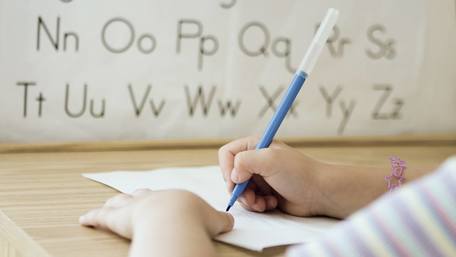Basic Spelling Guidelines
|
The reason many people struggle with spelling is that there is no clear, exhaustive list of spelling rules to memorize. If such a list existed, it would be incredibly long and confusing because English has borrowed many words from foreign languages and contains a lot of words that sound the same, but are spelled differently. The following list contains some of the more common rules that may help you figure out the spelling of an unfamiliar word.
But remember, in English, there are lots of exceptions to the rules...sorry! |
- I before E, except after C, or when sounding like A, as in neighbour and weigh. Examples of "I before E" words including friend, thief, belief and grief. Examples of "except after C" words include receive, ceiling, deceit and receipt. Besides neighbour and weigh, "sounding like A" words include sleigh, eight, beige and freight.
- The letter Q is always followed by a U except in some very rare cases that you will probably only ever use to play Scrabble.
- The letter X is never followed by an S.
- English words do not end in I, U, V, or J.
- Every syllable in a word needs at least one vowel (A, E, I, O, U and sometimes Y).
- To spell a short vowel sound, only one letter is needed. For example: apple, red, in, blot, up.
- Drop the silent E from the end of a word if adding another ending that begins with a vowel. For example, dance becomes dancing when adding an -ing ending and danced when adding an -ed ending.
- All has two Ls when it is written alone. As a prefix, drop the second L. For example: also, always, almos
- Adding a prefix does not usually change the spelling of the rest of the word. For example: constant becomes inconstant, run become rerun, fair becomes unfair
- When you add a suffix that starts with E (e.g. -ed, -er, -est) or an -ly ending to a word that ends with Y, the Y usually changes to an I. For example dry become dried, drier, driest. Baby becomes babies. Happy becomes happily. The exceptions: Words where y is preceded by a vowel (e.g. convey becomes conveyed) and -ing endings where the y stays in place (e.g. worrying and supplying).
- If a word ends in -s, -sh, -ch, -x, or -z, you add an -es to make it plural. For most other endings just add -s. So bus becomes buses, dish becomes dishes, lunch becomes lunches, box becomes boxes and buzz becomes buzzes while ski, house, tail and flower become skis, houses, tails and flowers.
Tips for Improving Your Spelling
- READ: We get better at speaking by listening to other people talk; we get better at spelling by seeing a lot of words in their proper context. Reading a lot will also help you improve other areas of your writing, like proper grammar and punctuation. Just remember the source: casual, informal writing sources (e.g. blogs, text messages, some magazines) may not worry about proper grammar, spelling and punctuation as much as other sources (e.g. textbooks, academic websites).
- KEEP TRACK: Make a list of your most commonly misspelled words. Try using the notes section of your agenda, an app on your phone or a page at the front of your binder. This will help you keep a custom list of the words you have the most trouble with, which is less overwhelming than the massive lists of commonly misspelled words that you can find online or in grammar books.
- WRITE OUT THE CORRECT SPELLING: Once you have identified some words that you regularly misspell, practice writing out the correct spelling on some scrap paper. Do this at least 5-10 times per word. When you get an assignment back, take note of all the misspelled words. Write the correct form in the margin 5 times for every time you misspelled the word.
- PLAY WORD GAMES: Just like reading, playing word games can help you learn to spell many words correctly, and it's fun. Try downloading some apps on your phone to play when you are killing time or play a classic game, like Scrabble or Boggle, with your friends or family.
- CHECK OUT SOME OF THESE RESOURCES TO HELP WITH SPELLING:

